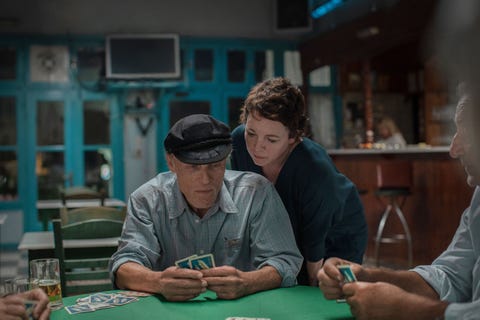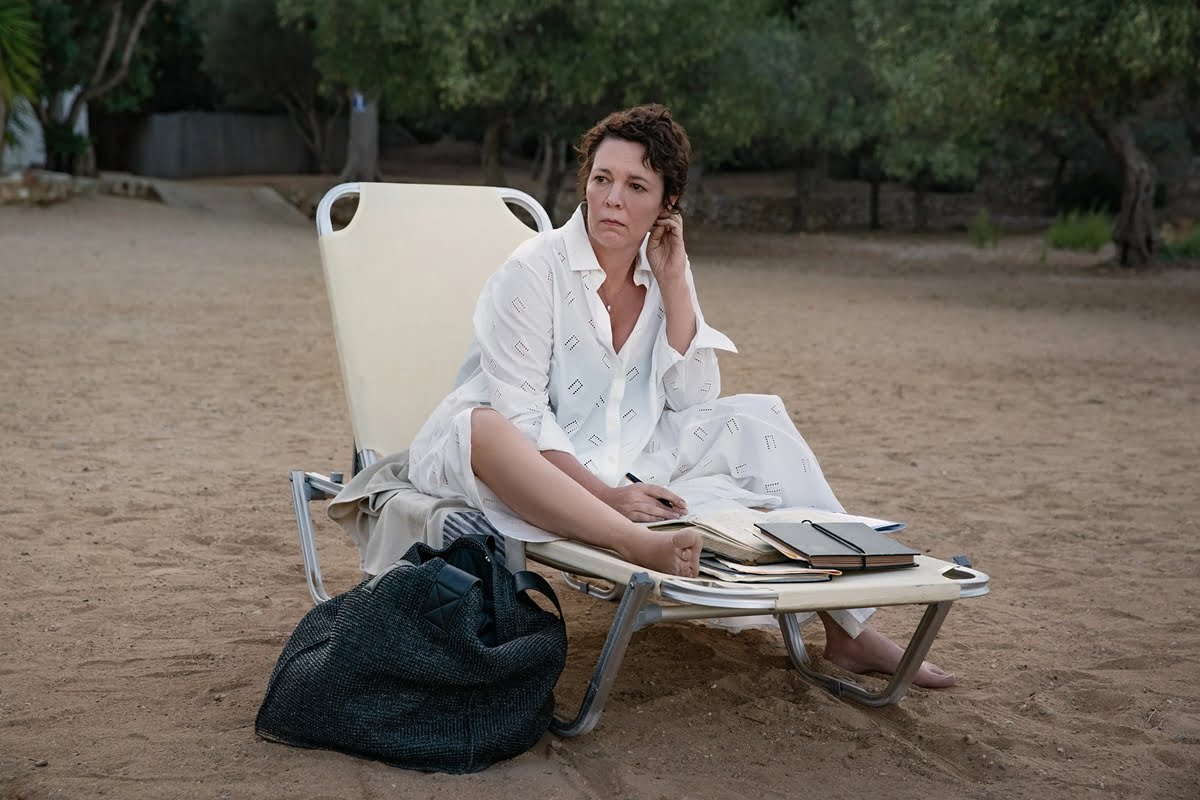The film adaption of Elena Ferrant’s novel ‘The Lost Daughter’ by the director Maggie Gyllenhaal transcends the mediocre portrayal of the twin tugs of children and career in a woman’s life. Instead, The Lost Daughter explores the raw and radical notion of motherhood that pillages the self (women) in irreparable ways. The film, which is touted as a psychological thriller, exemplifies the inescapable, frightening and suffocating course of motherhood, that entraps women in the excessiveness of their own maternal love and affection.
The stakes of The Lost Daughter feel so heavy, the viewing experience both unsettling and transgressive while it deftly unravels the societal idea that motherhood comes naturally to women. The performance of motherhood as an act that is always thought of as life-affirming is so deeply internalized in our culture, that a deviation in which the mother fails to optimize the presence of children in her life is deemed as punitive and unnatural. The film dares to posit this very idea that for some motherhood might not actualize the self but plunder it.
Also read: Analysing The Gendered Poverty, Homelessness & Single Motherhood In Netflix’s Maid
The female protagonist Leda’s (Olivia Colman) ambivalence towards motherhood – magnetic, vulgar, revelatory and repulsive – an anti-mothering expression is significantly explored in Gyllenhaal’s The Lost Daughter. It captures the dilemma of a ravaging Leda, who while beseeching agency over her young life is guilt-ridden due to her failed motherhood. This, coupled with Olivia Colman’s layered and exemplary performance gives the movie its piercing power.
The female protagonist Leda’s (Olivia Colman) ambivalence towards motherhood – magnetic, vulgar, revelatory and repulsive – an anti-mothering expression is significantly explored in Gyllenhaal’s The Lost Daughter. It captures the dilemma of a ravaging Leda, who while beseeching agency over her young life is guilt-ridden due to her failed motherhood. This, coupled with Olivia Colman’s layered and exemplary performance gives the movie its piercing power.
The setting is a Greek island where a British academic arrives for a holiday called Leda, a professor of Comparative Literature at Harvard settling ecstatically in her holiday apartment and hosted by a both wizened and virile looking man Lyle (Ed Harris). The film is built around a single traumatizing event from which the action metastasises. It takes place partly in the present and also in the Leda’s remembered past, triggered by a calamity that she witnesses on her ‘working vacation’ and in which she decides, insidiously, to participate. These scenes aren’t simply flashbacks; they have their own relevance and urgency which run alongside the immediate action in the running.
Leda, who is quite happy to do nothing but hang out on the beach, reading Dante and making notes, or journal musings in a little book, is interrupted by a crassly loud American family, who show up on the beach in which Nina, played by Dakota Johnson, the mother of a little girl distinctly captures Leda’s attention. Nina, who is a very young mother, strikes Leda’s memories as a young mother. Leda observes Nina’s relationship with her young daughter Elena with a keen ache of remembrance, of what it took to be a mother, and what being a mother took from her. She also observes that Elena mimics motherhood with cloying sweetness, with her little doll, Neni. All three are moored to their daughters, the devouring bond through which none of them can easily cast out.

As Leda for herself, her sexual life is a worringly stable entity. In her interaction with Lyle at the bar, Leda makes a strained conversation with him asking him to let her enjoy her dinner – and then perhaps ashamed of her rudeness, and thinking that she could perhaps find Lyle attractive after all, she makes a flirtatious and sultry remark only to leave her in deep embarrassment. The director, in most of Leda’s interaction with men like Will (Paul Mescal) and Lyle, attempts to guide the audience towards a developing sexual tension among the male characters and Leda which is eventually withdrawn with a wounding cruelty, perhaps signifying Leda’s inhibition towards her own sexual pleasure.

Men interrupt Leda constantly. In her memories of the alluring Professor Hardy who tries to woo her at an academic conference and appears to be a seismic event in her life to her husband who shares no responsibilities of a parent while selfishly advancing his academic career, Leda only finds disappointment in men. She warms to the kindly caretaker of the flat (Ed Harris), who interrupts her solitude, only when she realizes he has no interest in judging her life. She despises the raucous teenage boys who ruin her moviegoing and hurl insults at her, who only shut up when another man yells at them. But they all remain on the periphery.
Men are, in the world of Leda and Nina and Elena and even Mina, deeply beside the point, orbiting around their lives, annoyances to be dealt with and expelled or dangers to be dodged. Remarkably, the narrative of the film holds the life story of these women (Leda and Nina) central to its plot, and by displaying the menacing presence of men in their lives brings forth an honest and blatant portrayal of their encounters with men. The narrative is less restrictive in the sense that it does not endow men (Lyle, Will, Hardy and Joe) with much control over Leda’s life and in turn provide Leda with agency over her actions.
The Lost Daughter does not exacerbate on Leda’s victimization. It is free of the idea of women being victims of the mishappenings done onto them by men. Moreover, the film also does not assert a pitiful gaze on her actions as a perplexed mother and offers a more empathetic depiction of her “unnatural” motherhood.
Thus, though men generally are the indignant sources of misery in most women’s lives, The Lost Daughter does not exacerbate on Leda’s victimization. It is free of the idea of women being victims of the mishappenings done onto them by men. Moreover, the film also does not assert a pitiful gaze on her actions as a perplexed mother and offers a more empathetic depiction of her “unnatural” motherhood. The story of The Lost Daughter leaves the audience with a piercing question on the idea of a good mother. Is a good mother someone who loves her children? On the contrary, it is this idea of a gripping motherly love that accounts for making her an “unnatural” mother.
Also read: ‘I’m Grieving The Mother I Will Not Be’: The Conflicts Of Rejecting Motherhood
Like touching a raw wound, every cry, laugh, gesture, and sweetness of young daughters can be painful for how much Leda and Nina find themselves unable to live both with or without them. And no man — whether father, brother, husband, or lover — can alleviate this. Because mothers and daughters share an intractable bond; they share histories, they are connected like a long, unbroken chain of papermen through the generations. Neither can escape the crushing weight of their shared fates, their inexorable hurtle towards the same epicenter of time, and what it means to live the experiences of being a woman. The Lost Daughter sits with a woman who escaped its suffocation, however temporarily; the women who experience it disjointedly, and for whom there is no peace.
Featured image source: newyorker
About the author(s)
Mansi Bhalerao is an Ambedkarite feminist, an undergraduate at Miranda House. She is an aspiring student of Sociology, trying to navigate and assert her praxis.




